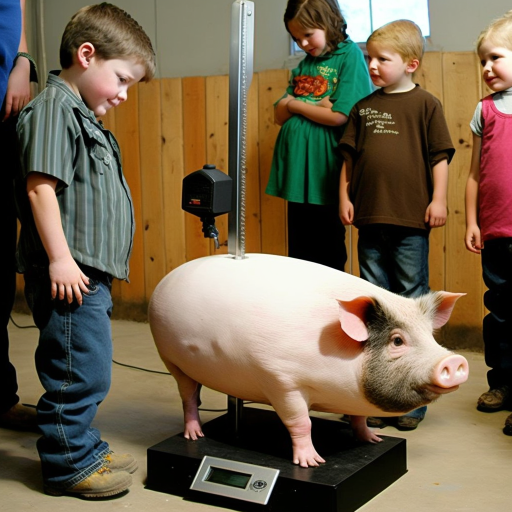Weighing the Pig

In education, it's common for teachers and administrators to focus on grades and test scores as the primary measures of success. However, the saying "weighing the pig doesn't make it heavier" can be applied to this approach. Simply put, just because we are constantly assessing and evaluating students, it doesn't necessarily mean that they are learning or growing in meaningful ways.
One problem with this focus on grades and test scores is that it can create a narrow, superficial understanding of what constitutes learning. Students may be motivated to do well on exams and assignments in order to get good grades, but they may not fully engage with the material or see the relevance of what they are learning. This can lead to a disconnect between what is being taught and what students are truly interested in or passionate about. The opposite is also true - students who do engage meaningfully and see the relevance may do poorly in exams and assignments. Both lead to a misrepresentation of the progress that a learner has made.
Furthermore, grades and test scores are not always accurate indicators of a student's knowledge or potential. Factors such as test anxiety, socioeconomic status, and language barriers can all impact a student's performance on exams. These external factors may not accurately reflect a student's understanding or ability to apply what they have learned.
So, if grades and test scores are not always reliable indicators of student learning, what can we do instead? One solution is to focus on the process of learning rather than the end result. This means encouraging students to ask questions, engage in discussions, and take ownership of their own learning. It also means providing opportunities for hands-on, experiential learning, where students can apply what they have learned in real-world situations.
Another solution is to broaden the definition of success in education. While grades and test scores can be important, they should not be the only measure of a student's progress. Other factors such as creativity, problem-solving skills, teamwork, and communication can all be important indicators of a student's potential. By considering a wider range of factors, we can better understand a student's strengths and areas for growth.
Ultimately, the saying "weighing the pig doesn't make it heavier" reminds us that simply collecting data and measurements does not necessarily lead to progress or improvement. Instead, we need to focus on the quality of learning experiences and consider a variety of indicators to truly understand a student's growth and potential. By shifting our focus from grades and test scores to the process of learning, we can create a more meaningful and engaging educational experience for all students.
